Press Release
Ethereum’s Ridiculously High Gas Fees. Why they exist and strategies to avoid them.
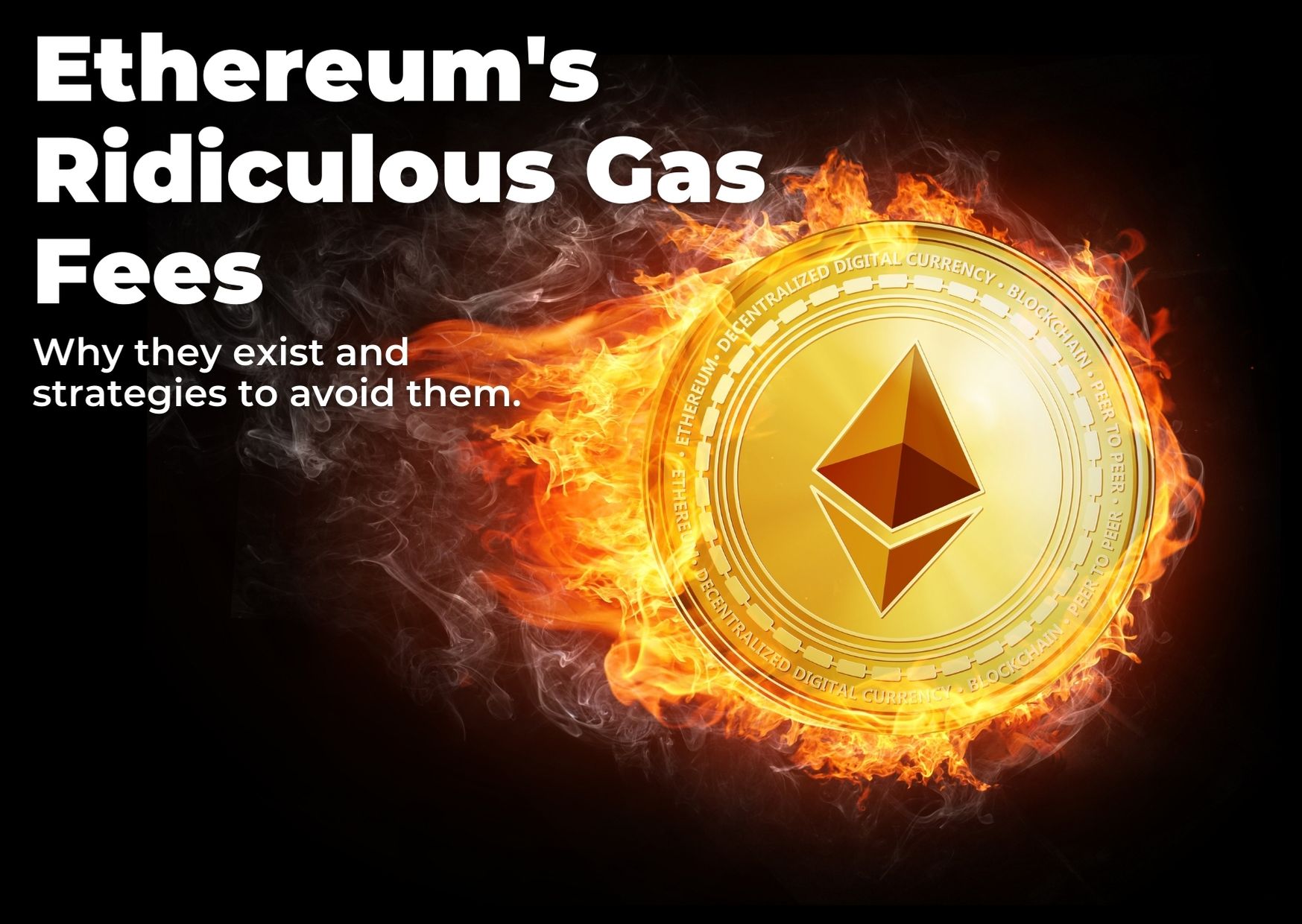
Are you tired of hearing about Ethereum’s gas fees and not understanding what the freak they are? If so, read on.
Over the past 12 months, heavy and continuous use of Ethereum-based decentralized financial apps for activities like token exchanging, yield farming, and trading, have generated congestion on the Ethereum network. As the network becomes more stressed, congestion implies longer transaction times and higher prices.
Ethereum and Exchanges
Let’s try to understand gas fees in a practical example.
Adam purchases $1000 worth of Ether on Uniswop, incurring a $20 transaction charge. Adam now has $980 worth of Ether.
Adam has heard of a new token for a project he likes the sound of, and would like to trade his Ether with on the success of the project.
Adam then links his wallet to the Investcap trading platform, revealing that he may fund his account on their trading platform with his $980 worth of Ether.
The new token project is now going at $0.38, and Adam wants to trade $765 (0.4 ETH) on its success.
Adam now selects the token on the platform from the drop-down option. He inputs 0.4 ETH in the ‘place trade’ field.
The trade is open, and should the markets move in the direction he predicted, he will be able to take profits when the trade closes.
The numbers presented above tell a pleasant story of Adam exchanging his dollars to Ethereum and potentially profiting off his trade.
The gas fees were paid at the start when he purchased his Ethereum from Uniswop, and will hopefully make that back off of his successful trade.
How it affected Adam
It’s worth noting that these fees change based on network traffic, so traders may use tools like ‘Gas Buddy’ to figure out when the ideal time is to spend gas — whether that coincides with the ideal moment to acquire a token in terms of price is another issue. As a result, most traders just swallow the fees because they want the coin at its present price.
Adam received his tokens, but at a cost in the form of gas fees. Importantly, Adam’s gas price would be the same whether he would have exchanged $10,000 or $1,000.
It should now be evident why Ethereum exchange gas expenses are pricing out smaller traders, and why those wishing to make large exchanges are turning to layer-2 exchanges, which offer much cheaper but almost comparable services.
Why gas charges exist.
Each Ethereum transaction necessitates the use of computer resources, as well as a charge.
In this context, Ethereum gas costs relate to the cost of completing a transaction. Gas costs are paid in ETH, Ethereum’s native currency and prices are expressed in Gwei, which is an ETH denomination — one Gwei equals 0.000000001 ETH.
Instead of claiming that your gas costs 0.000000001 Ether, you may mention that it costs 1 Gwei. In summary, gas fees aid in the security of the Ethereum network by levying a price for each calculation performed on the network and eliminating bad actors.
How they impact us.
As average person with lesser sums of money want to enter the cryptocurrency field, cryptocurrency token exchanges are becoming more prevalent. However, many people are unaware that switching tokens, such as from Ethereum to Bitcoin, incurs costs. Gas expenses are in addition to the standard cost for utilizing a swapping platform. When using these Ethereum exchanges, Ether (ETH) is the preferred currency, and it is required to make fee payments.
What we, the users, are doing about it.
We’re seeing a pushback against fees at a time when individuals are flocking to trade or exchange in cryptocurrencies. Until recently, ‘whales’(who move massive sums of money) were the only ones who paid these costs. After all, a $120 cost on a $100,000 transfer is a bargain, but a $120 price on a $500 transfer is not.
Many would-be traders find themselves in this scenario. This tutorial helps clarify what to anticipate in terms of costs on one of the top Ethereum exchanges Uniswap for people who are new to cryptocurrencies or have never done token swaps before. For a low-level trader or the inexperienced one, utilizing an Ethereum exchange like Uniswop to buy and then trade on Investcap, might look somewhat like this.
Conclusion
Ethereum? Epic altcoin network.
Cryptocurrency is still a highly speculative financial instrument, and Ethereum’s long-term success is not guaranteed. With crypto, we’re on uncharted ground, and whether it will revolutionize the world or collapse, and burn is anyone’s guess.
If you decide to buy Ethereum, be sure you have a high-risk tolerance and are only putting money you have at risk. The last thing you want to do is gamble your whole life savings on cryptocurrencies.
Ethereum has the potential for huge profits on trading platforms like Investcap, but make sure you’ve done your homework and understand what you’re getting into before buying cryptocurrencies. Cryptocurrency has the potential to, and very likely will change many people’s lives.
Disclaimer
The content presented in this publication is meant for informational & educational purposes only and you should not construe any such information or other material as legal, tax, investment, financial, or any other advice. Nothing contained in this publication constitutes a solicitation, recommendation, endorsement, or offer by the author/s or any third party/ies to buy and/or sell and/or invest in any financial instruments.

-
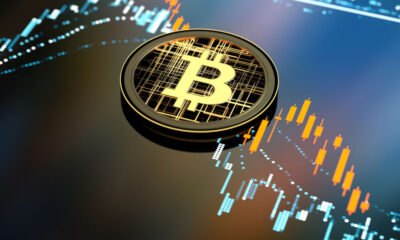
 Press Release2 years ago
Press Release2 years ago5 best crypto exchanges of 2022
-
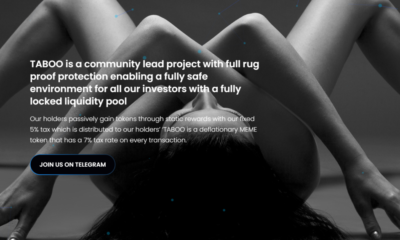
 Press Release3 years ago
Press Release3 years agoMeet TABOO, the unique token that gives reward for every transaction
-

 Press Release4 years ago
Press Release4 years agoCloud Mining: How Multimine is Making Crypto Mining Operation More Seamless.
-
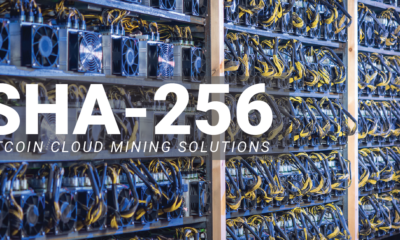
 Press Release3 years ago
Press Release3 years agoSHA-256 – The best combination of Bitcoin mining, Cloud, and affordable Hash Power
-
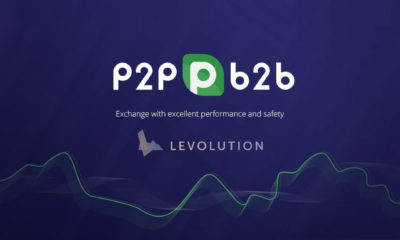
 Press Release5 years ago
Press Release5 years agoLISTING OF LEVL ON A SECOND EXCHANGE
-

 Press Release4 years ago
Press Release4 years agoEXMR FOUNDATION NETWORK “LABS OF DAPPS & PROJECTS” MORE INFO.
-
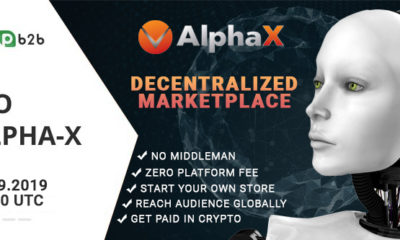
 Press Release5 years ago
Press Release5 years agoAlpha X – A e-commerce platform with completely decentralized system.
-

 News5 years ago
News5 years agoBrutalize your crypto trading strategies with TradeSanta



